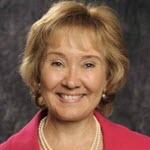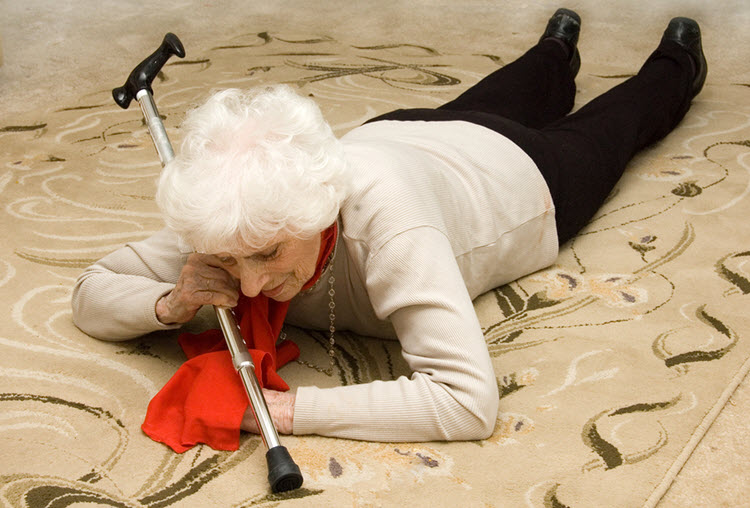The Hidden Epidemic?
A senior fall, a broken hip, and a downward spiral from which there is no recovery. This scenario is well documented and universally understood as a risk for our elderly.
But what about those small, unreported falls that become cumulative? Can they lead to Traumatic Brain Injury(TBI)? The answer is yes. The question is, why are small falls such a risk for our seniors?
Aging, Medication, and Mobility
Our brain starts shrinking around 40 years old and some amount of shrinkage is normal. What are the consequences of our brain shrinking as we age?
When we fall and our head hits there is a ricochet effect, allowing for damage to the brain that a younger person may not sustain. Even a small fall can have a bigger effect on a senior due to medication and mobility.
“Old age doesn’t come alone, it brings other health problems. For someone taking an anticoagulant medication, it’s possible to see increased bleeding and damage from a series of small falls. Pre-existing cardiac and pulmonary health conditions can interfere with recovery. The brain’s ability to find new pathways around the damaged areas is impacted by these chronic health issues because blood flow to the brain is not as rich.” Dr. Cynthia Boyer
The typical changes in vision, gait and balance as we age, all contribute to falls. Add to that slippery floors, poor lights, improper use of assistive devices and the likelihood of a fall increases.
All this means, it is important to have their doctor do a baseline cognition and neurological evaluation. This is especially true if you don’t see your loved one consistently. A baseline can serve as a way for the doctor to diagnose TBI. Without a baseline, you may not recognize TBI related cognitive slowing, or you may attribute it to dementia. Going forward as the advocate, if you suspect TBI because of noticeable differences from the baseline, you can bring it up with the doctor and ask for a neuropsychological assessment.
Signs of a fall and what to do about it
There are many factors leading to falls: depression, medication, poor vision, pre-existing cognitive impairment and normal aging. Safety in the home is another factor. The problem is seniors, especially those that live alone, don’t want to tell you they have fallen. Indeed, they may not even remember.
Family and caregivers need to be detectives and look for signs of a fall:
- Bruising on the arms and hands because they try to brace themselves
- A black eye or bump on the head
- Things broken in the house or missing because they have been broken
- Car dents and scratches on the bumper
- Physical, emotional, behavioral and social changes
- Signs of cognitive slowing:
- It takes longer to do things
- Depth perception is off
- Lack of awareness
The challenge with cognitive difficulties is that some of these things can predate the fall or concussion. And seniors who sustain small falls over time, could have a slow brain bleed or TBI that results in the cognitive decreases.
If you suspect your senior has fallen, here are steps to take:
- Follow up with their GP for a basic neuro exam. Request further follow up if TBI is suspected.
- After a known fall, watch to see if cognition comes back to baseline. Does it stay where it is or get worse? You need to know if the person’s mental status is changing.
- Consider technology: putting in a surveillance system, invest in wearable devices with motion detectors that automatically call after a fall
Of course, what you want is to help you senior avoid falling in the first place. Some things you can do:
- Find ways to help them exercise. It builds stamina and balance.
- Review medications, interactions can cause dizziness, unsteadiness
- Get an eye exam to see where vision and perception fall and what corrective action can be taken
- Make sure they are using assistive devices like canes or rollator correctly
- Make sure your loved one wears footwear that have grip soles
Rehabilitation after a fall
Most people think of rehab as going to a facility after surgery and Medicare pays for it. In the instance of a mild TBI, unless your loved one is admitted to the hospital and stays for three days, Medicare will not pay for rehabilitation.
You may need to be creative for your senior to get the help they need after a fall, but it is well worth it. All the literature shows that older adults benefit with increased mobility and balance. Self-care assistance devices like canes are also a big help.
There are outpatient physical therapy and occupational therapy companies you can explore. Adult day care programs often have an exercise program. Take them to the mall and walk, have your trainer show you some balance and strengthening exercise, and ways to keep them safe, then do it with them.
The statistics around falls for our seniors are eye opening. The cost to our seniors after a TBI are devastating.
- There is a higher probability of a disability, function and difficulty in navigating everyday life
- The more severe the fall, the worse the outcome, even a moderate fall increases the risk of a TBI
- The older you are, the more your chance for recovery declines
- If you have the genetic marker for Alzheimer’s, your chances for a good recovery is reduced
- TBI is a hidden, silent epidemic for our seniors. Keep your eye out for the signs and advocate for a baseline exam.
Some additional resources:
- Better Health While Aging: 8 Things to Have the Doctor Check After an Aging Person Falls
- Brainline.org
- Brain Injury Association of America
- United States Brain Injury Alliance
- Brain Injury Alliance of NJ
- Traumatic Brain Injury in Vehicular Accidents
With thanks to my collaborator, Dr. Cynthia Boyer.

In addition to her clinical work, Dr. Boyer holds faculty positions at Philadelphia College of Osteopathic Medicine and Wiedner University and is a trainer for the Academy of Certified Brain Injury Specialists (ACBIS). She serves on the board of the New Jersey Brain Injury Alliance and is a medical rehabilitation surveyor for the Commission on Accreditation of Rehabilitation Facilities (CARF).
Currently, Dr. Boyer is in private practice in Cherry Hill, New Jersey. She is also a clinical consultant for ReMed New Jersey and CHE Senior Psychological Services.
Disclaimer: The material in this blog is for educational purposes only. It is not intended to replace, nor does it replace, consulting with a physician, lawyer, accountant, financial planner or other qualified professional.

